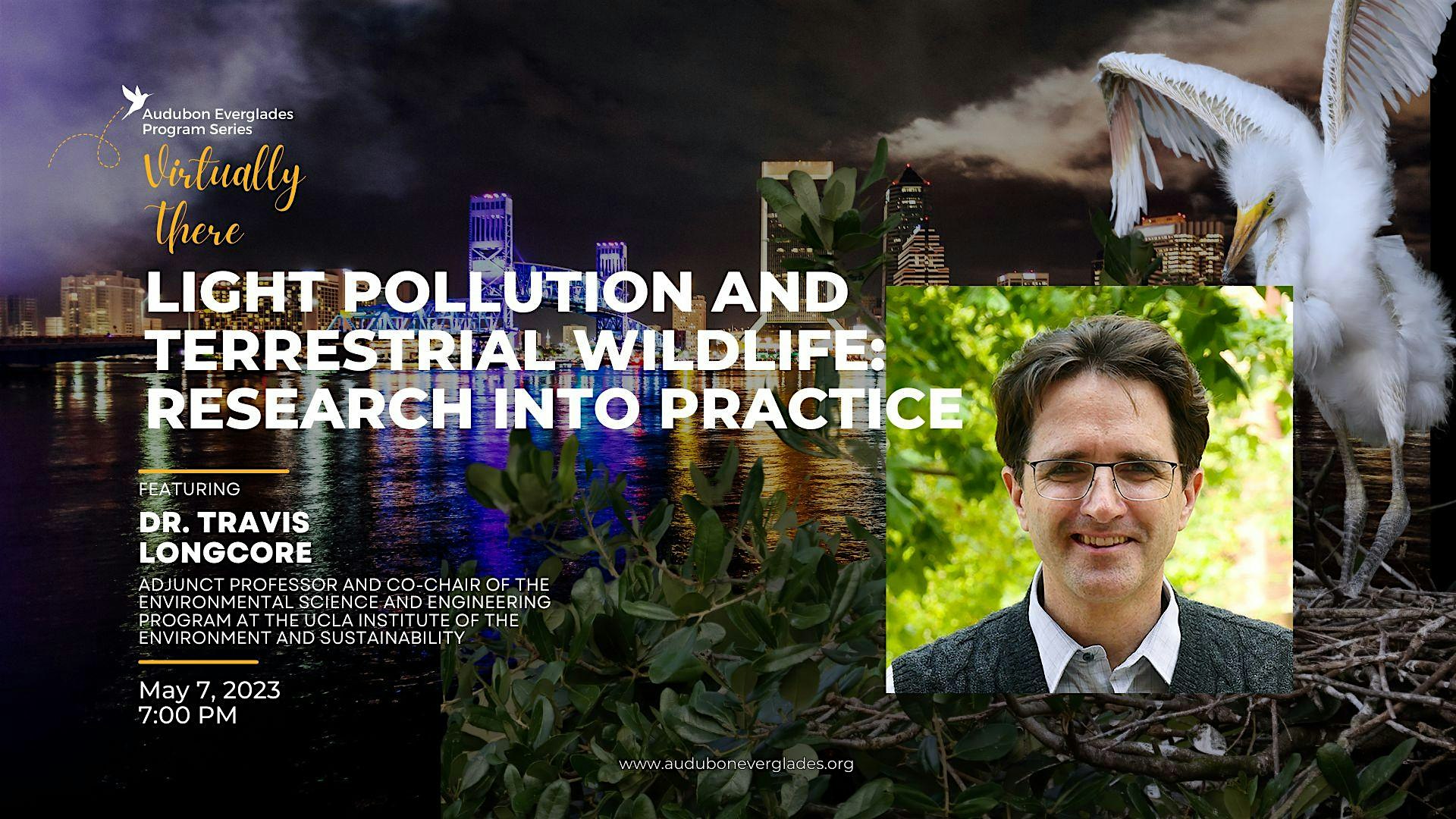
- This event has passed.
Light Pollution & Terrestrial Wildlife: Research Into Practice
May 7, 2024 @ 7:00 pm - 8:30 pm

The past 20 years have seen an explosion of research into the adverse effects of light at night on wildlife. In this presentation, I will describe and categorize those effects and how they affect species and ecosystems, ranging from the disruption of circadian rhythms for birds to fragmentation of landscapes for puma. Then I will review the different means by which such impacts can be reduced, including shielding, reduction in intensity, and the synergistic benefits of adjusting spectrum to avoid the most disruptive colors of light.
About the Presenter:
Travis Longcore grew up under the Northern Lights of Eastern Maine. He went to the University of Delaware, followed by UCLA, where he earned and M.A. and Ph.D. in Geography. He is now Adjunct Professor and Co-Chair of the Environmental Science and Engineering Program at the UCLA Institute of the Environment and Sustainability. His landmark article “Ecological Light Pollution” (Longcore and Rich 2004) and 2006 co-edited book Ecological Consequences of Artificial Night Lighting (Island Press) have come to define a rapidly growing research area in ecology. In 2022, he received the Galileo Award from the International Dark-Sky Association “in recognition of outstanding achievements in research or academic work on light pollution over a multiple-year period.” He is also the President of the Los Angeles Audubon Society.
New Paper: A Compendium of Photopigments and Visual Spectral Response Curves
https://www.ioes.ucla.edu/person/travis-longcore/


